
Nevan Krogan
University of California, San Francisco
USA
EMBL–Wellcome Connecting Science Conference
This conference will take place at EMBL Heidelberg, with the option to attend virtually.
Even after a few decades of great accomplishments, the field of proteomics remains to develop further, fueled by continued technological and computational advances in high-throughput methods and multi-omics big data integration. The ‘Proteomics in cell biology and disease mechanisms’ conference will provide attendees with a program that provides the current “state-of-affairs” in proteomics including a future perspective. It will be held at a pioneering hot spot for proteomics in Europe, in association with EMBL, in Heidelberg Germany.
This year’s programme will focus on the latest technological advances with a focus on medical and clinical applications of proteomics, as well as fundamental and mechanistic aspects of cell biology including intra- and inter-cellular communication through interactions and post-translational modifications.
This is a cross-disciplinary meeting that will bring together proteomics technology experts of all ages, from academia and industry, life science specialists, and medical communities who are interested in systems biology, cell signalling, as well as disease and clinical proteomics.
EMBL Heidelberg will be hosting the final event of this very successful series that has been alternating between Heidelberg, Germany and Wellcome Genome Campus, UK.
“I really enjoyed the EMBL-Wellcome Genome Campus Conference: Proteomics in Cell Biology and Disease Mechanisms. It was an exciting and very stimulating opportunity for me and it gave me the opportunity to network and establish novel collaborations. I look forward to participating in the next edition.” – Giovanni Cuda, M.D., Department of Experimental and Clinical Medicine University of Magna Graecia, Medical School Catanzaro, Italy
“An excellent conference, great for networking and the exchange of knowledge, perfectly organised in the beautiful city of Heidelberg.” – Dina Schuster, Department of Analytical Chemistry, Faculty of Chemistry, Vienna, Austria
.
Please see EMBL’s COVID-19 safety recommendations if attending the on-site event.
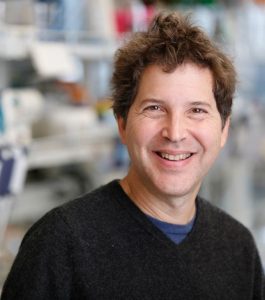
University of Washington
USA
(Virtual speaker)
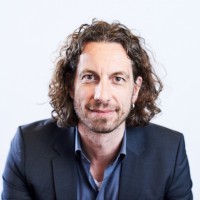
Cellzome
Germany
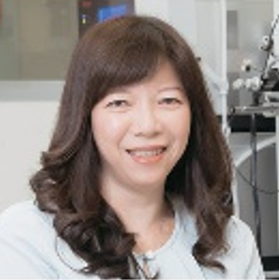
Academia Sinica
Taiwan
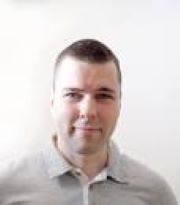
Charité
Germany
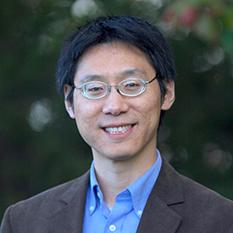
Yale University
USA
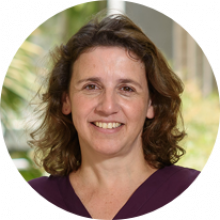
Weizmann Institute of Science
Israel
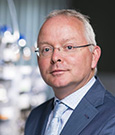
Utrecht University
The Netherlands
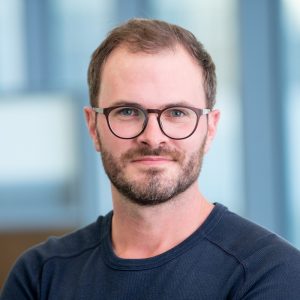
Max Perutz Labs, Medical University of Vienna
Austria
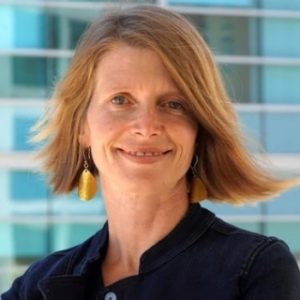
Stanford University School of Medicine
USA
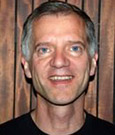
Max Planck Institute of Biochemistry
Germany
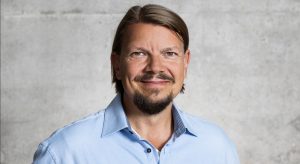
University of Copenhagen
Denmark
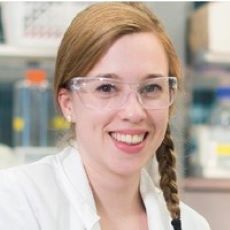
Walter and Eliza Hall Institute
Australia
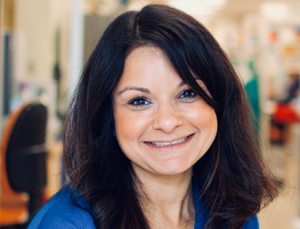
Broad Institute
USA

SciLifeLab
Sweden
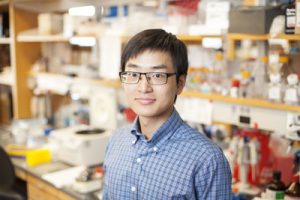
National Center for Protein Sciences
China

Institute of Chemistry, Academia Sinica
Taiwan
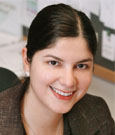
Princeton University
USA

Utrecht University
The Netherlands
Are you on social media? Post using #EWCSProteomics and don’t forget to tag @EMBLEvents
| Time (Europe/Berlin) | Session |
|---|---|
| 11:00 – 12:30 | Registration and light refreshments |
| 11:15 – 12:15 | Pre-conference workshop “Protein Interaction Coupling (PICO) – A Novel Platform Technology for Ultra-sensitive Detection and Quantification of Proteins, Protein Interactions, and PTMs“ by ACTOME (registration required) |
| 12:30 – 12:45 | Opening remarks |
| 12:45 – 13:30 | Keynote speaker: Using systems approaches to understand mechanisms in disease Nevan Krogan – University of California, San Francisco, USA Not available on demand |
| Session 1: Cellular communication and interactions Chair: Marco Hein – Max Perutz Labs, Medical University of Vienna, Austria | |
| 13:30 – 13:55 | A proteomic perspective on the removal of dying cells Maria Tanzer – Walter and Eliza Hall Institute, Australia |
| 13:55 – 14:10 | Mapping genetic determinants of phosphorylation identifies upstream signalling regulators Elise Needham – University of Cambridge, United Kingdom |
| 14:10 – 14:25 | Intercellular communication within a virus microenvironment dictates cellular resistance to secondary infections in a proximity-dependent manner James Kostas – Princeton University, United States of America |
| 14:25 – 14:50 | Flash talks Poster numbers: 37 Aljohara Alotaibi 39 Miguel Rosado 41 Christian Blum 43 Lucia Buccioli 45 German Rosano 47 Joel Christie 49 Francesca Conte 51 Miguel Cosenza Contreras 55 Matthias Fahrner 57 Joris Frenz 59 Biplab Ghosh 61 Christian Gnann 65 Nisha Hemandhar Kumar 67 Shelley Jager 71 Sonja Kabatnik 73 Hasmik Keshishian 75 Bianca Kuhn 77 Ming Tong 81 Nadja Gebert |
| 14:50 – 15:20 | Coffee Break |
| 15:20 – 15:45 | Next generation pan-cancer blood proteome profiling using proximity extension assay and mass spectrometry Mathias Uhlén – SciLifeLab, Sweden (virtual speaker) |
| 15:45 – 16:00 | Phosphoprotein dynamics of interacting tumor and T cells by HySic Kelly Stecker – Utrecht University, The Netherlands |
| 16:00 – 16:15 | Structural systems biology by crosslinking mass spectrometry and deep learning Andrea Graziadei – Fondazione Human Technopole, Italy |
| 16:15 – 16:40 | Mapping the diversity in spatiotemporal regulation of G protein-coupled receptors Ruth Huttenhain – Stanford University School of Medicine, USA |
| 16:40 – 17:05 | Flash talks Poster numbers: 83 Giorgia Massacci 85 Andreas Metousis 87 Ivan Mikicic 89 Sophia Müller-Dott 91 Marie Neu 93 Denys Oliinyk 97 Stefan Ebner 99 Benjamin Raymond 101 Hendrik Weisser 103 Valeriia Sapozhnikova 105 Felix Schneidmadel 107 Adrianna Seredynska 111 Sophia Steigerwald 113 Pranay Talla 115 Marvin Thielert 121 Katharina Waury 125 Marius Wrona |
| 17:05 – 18:35 | Poster session 1 (odd numbers) with refreshments |
| 18:35 – 20:05 | Dinner in Canteen |
| 20:05 – 21:35 | Social event |
| Time (Europe/Berlin) | Session |
|---|---|
| Session 2: Proteomics technologies Chair: Ruth Huttenhain – Stanford University School of Medicine, USA | |
| 09:00 – 09:25 | Narrow-window DIA for ultra-fast quantitative analysis of comprehensive proteomes with high sequencing depth Jesper V. Olsen – University of Copenhagen, Denmark |
| 09:25 – 09:40 | A nongenetic, optochemical method for proximity labeling in the live mouse brain Mikiko Takato – Kyoto University, Japan |
| 09:40 – 09:55 | Deep quantitative glycoproteomics reveals gut microbiome induced remodeling of the brain glycoproteome Clément Potel – EMBL Heidelberg, Germany |
| 09:55 – 10:25 | Coffee Break |
| 10:25 – 10:50 | Mapping nanoscale proteome landscape and beyond by highly streamlined microfluidics-based strategy Yu-Ju Chen – Academia Sinica, Taiwan |
| 10:50 – 11:05 | Advances in sensitive, high-throughput single-shot HLA-I and HLA-II immunopeptidomics Steven Carr – Broad Institute of MIT and Harvard, United States of America |
| 11:05 – 11:20 | Hydrogel-based tissue transformation methods for spatially resolved untargeted proteomics Kiryl Piatkevich – Westlake University, China |
| 11:20 – 11:45 | Advances in subcellular and cell surface proteomics using proximity and chemical labeling approaches Namrata Udeshi – Broad Institute, USA |
| 11:45 – 13:15 | Meet the speakers and Lunch |
| Session 3: Hot now: Single cells and spatial proteomics Chair: Vadim Demichev – Charité, Germany | |
| 13:15 – 13:40 | Spatially resolved proteogenomic profiling via deterministic barcoding in tissue Rong Fan – Yale, USA |
| 13:40 – 13:55 | Single-cell proteomics and transcriptomics of the human hematopoietic stem and progenitor hierarchy enables modelling of protein expression dynamics Benjamin Furtwängler – Copenhagen University, Denmark |
| 13:55 – 14:10 | Spatial proteomics reveals regional proteomic heterogeneity in the mouse brain upon circadian disruption Frederike Schäfer – Ludwig-Maximilians-Universität München, Germany |
| 14:10 – 14:55 | Coffee Break |
| 14:55 – 15:20 | Design of new protein functions using deep learning David Baker – University of Washington, USA (pre-recorded talk) |
| 15:20 – 15:35 | Pooled multicolor tagging for visualizing subcellular proteome dynamics Andreas Reicher – CeMM Research Center for Molecular Medicine of the Austrian Academy of Sciences, Austria |
| 15:35 – 16:00 | Spatial proteomics with single cell resolution to study functional heterogeneity in tumor tissues Matthias Mann – Max Planck Institute of Biochemistry, Germany |
| 16:00 | Free evening |
| Time (Europe/Berlin) | Session |
|---|---|
| Session 4: Proteomics for precision medicine Chair: Namrata Udeshi – Broad Institute, USA | |
| 09:00 – 09:25 | Immunoglobulins: the not to be ignored proteins in the plasma proteome Albert Heck – Utrecht University, the Netherlands |
| 09:25 – 09:40 | New proteomics approach to identify tissue leakage proteins in liquid biopsies Esperanza Fernandez – VIB, University of Ghent, Belgium |
| 09:40 – 09:55 | Systemic analysis of the pathological effects of a snake venom and of the impact of antivenom, in a murine model of envenoming Solange Maria de Toledo Serrano – Butantan Institute, Brazil |
| 09:55 – 10:25 | Coffee Break |
| 10:25 – 10:50 | Proteomic analysis of cancer internal heterogeneity Tami Geiger – Weizmann Institute of Science, Israel |
| 10:50 – 11:05 | Revealing the commonalities of monomeric and polymeric IgA1 clonal repertoires from human serum and milk with LC-MS methods Amber Rolland – Utrecht University, The Netherlands |
| 11:05 – 11:20 | Plasma immunopeptidomic profiling by ultra-high sensitive mass spectrometry Maria Wahle – Max Planck Institute of Biochemistry, Germany |
| 11:20 – 11:45 | Phamacoproteomic profiling identifies secreted markers for aberrant drug action Marcus Bantscheff – Cellzome, Heidelberg, Germany |
11:45 – 12:10 | Flash talks Poster numbers: 36 Rim Abderrahim 38 Constantin Ammar 40 Franziska Traube 42 Susanne Breitkopf 44 Mira Burtscher 48 Emilio Cirri 50 Miguel Cosenza Contreras 52 Alexandra Davies 54 Katrin Stuber 56 Tobias Feilen 58 Vijayalakshmi Gangadhara 60 Ursula Glocker 62 Nawal Hajj Sleiman 64 Jennifer Heck 66 Ericka Itang 68 Agnete Jensen 70 Anette Johansen 72 Sabita Kawan 74 Hasan Basri Kilic 76 Shibojyoti Lahiri 78 Mujia Li |
| 12:10 – 13:40 | Meet the speakers and Lunch |
| Session 5: Computational proteomics and data analysis Chair: Maria Tanzer – Walter and Eliza Hall Institute, Australia | |
| 13:40 – 14:05 | Fast and sensitive DIA proteomics and its applications Vadim Demichev – Charité, Germany |
| 14:05 – 14:20 | Tapioca: an ensemble machine learning framework for studying global protein-protein interaction network dynamics identifies NUCKS1 as a pan-herpesvirus proviral factor Tavis Reed – Princeton University, United States of America |
| 14:20 – 14:35 | Hierarchical Gaussian process models uncover the dark meltome of thermal proteome profiling experiments Cecile Le Sueur – EMBL Heidelberg, Germany |
| 14:35 – 15:05 | Coffee Break |
| 15:05 – 15:30 | Democractizing proteomics for chemists Jing Yang – National Center for Protein Sciences, China |
| 15:30 – 15:45 | Enhancing network methods for the systematic analysis of signaling from phosphoproteomics data Martin Garrido-Rodriguez – EMBL Heidelberg and Heidelberg University, Germany |
| 15:45 – 16:10 | Systematic immuno-capture of native organelles defines a spatial map of the human proteome Marco Hein – Max Perutz Labs, Medical University of Vienna, Austria |
| 16:10 – 16:35 | Flash talks Poster numbers: 80 Maximilian Maldacker 82 Barbara Kracher 86 Alina Meyer 90 Johannes Bruno Müller-Reif 92 Kendra Njo 94 Dimitris Papagiannidis 95 Iwan Parfentev 96 Kuan-Chih Peng 98 Sandra Pihlström 100 Alicia Reyes 104 Julia Schessner 106 Luisa Schwarzmüller 108 Tatiana Shamorkina 110 Bachuki Shashikadze 112 Oliver Schilling 114 Neil Taylor 116 Annika Topitsch 122 Caroline Weiss 124 Tilman Werner 126 Maximilian Zwiebel |
| 16:35 – 18:05 | Poster session 2 (even numbers) with refreshments |
| 18:05 – 18:50 | Keynote speaker: Decoding the protein dance Paola Picotti – ETH, Zurich, Switzerland Not available on demand |
| 18:50 – 19:05 | Closing Remarks and Poster Prize |
| 19:05 – 20:35 | Conference dinner |
| 20:35 – 22:35 | Conference Party |
On-site registration fees include admission, conference materials, COVID-19 safety measures, meals and coffee breaks. Participants are expected to book and pay their own accommodation and travel expenses.
Virtual registration fees include access to all of the talks (livestreamed and on demand) and facility to submit questions.
| On-site Academia | €710 |
| On-site PhD Student | €610 |
| On-site Industry | €910 |
| Virtual Academia | €200 |
| Virtual PhD Student | €150 |
| Virtual Industry | €250 |
A letter to support your visa application will be issued, on request, once payment of the registration fee is confirmed. We recommend that you book your visa appointment as soon as possible, to avoid any delay with your visa application.
Accredited journalists may be eligible to register for complimentary press registration. Registrants may be required to provide accreditation or equivalent proof of press membership after registration. Please contact Catherine Casas for more information. Please note that we do not offer complimentary registrations for editors of scientific journals.
Registration will be on a first come, first served basis. Your place can only be confirmed after payment of the registration fee. If you are added to our waiting list, please consider taking advantage of our offerings to participate virtually.
On-site participants: Types of payments accepted are international bank transfers and credit card payments.
Virtual participants: We are only able to accept card payments. In exceptional cases we can accept bank transfers. Please contact Catherine Casas for details.
Only participants registering to attend the on-site event are eligible to submit an abstract. Abstracts will not be accepted from virtual participants.
After registration you can submit your abstract via a separate link that will be provided in the email confirmation. Alternatively, you can access the link on the confirmation page directly after registering. The same login credentials are used for both processes.
Please note:
Abstract body: The limit of 2000 characters refers to manually typed text and excludes spaces. If an error occurs try using a different web browser (preferably Google Chrome or Mozilla Firefox).
If you copy-paste the text into the form, hidden formatting might still be included which may cause the text to exceed the 2,000 character limit resulting in an error message. We recommend you clear all formatting before pasting in the text.
If you have special symbols in your text, make sure you are using Unicode characters, otherwise these will not be recognised.
Title: The title should not exceed 20 words. Only the first word of the title should start with a capital letter and the rest should be lowercase.
Authors and affiliations: Please fill in the author’s details as requested in the online form. The compulsory fields are: First Name, Last Name, Organisation Name (Affiliation or Company), Country and Email.
Kindly mark only one author in the role of First Author and please don’t forget to indicate who will be the Presenter.
Please enter your co-authors correctly via the system by adding accounts together with their organisation/institute. Do not copy-paste them into the body of the abstract text, as they will not be indexed in the abstract book.
Presentation types: When submitting your abstract, you can apply for an oral or poster presentation. A selection process will take place with the results announced 2-3 weeks after the abstract submission deadline.
For detailed instructions on how to submit a conference abstract, follow the instructions provided in this video.
Please check our FAQs pages for further information on how to submit an abstract.
Limited financial assistance is provided by the EMBL Advanced Training Centre Corporate Partnership Programme in the form of both registration fee waivers and travel grants. These are available for on-site participants at EMBL Conferences. We are currently working on securing funding for all virtual participants, and ask that you please apply for financial assistance for both on-site and virtual participation.
Your place in the meeting is only confirmed by paying the registration fee, which is mandatory even when receiving a fee waiver.
The fee waiver will cover the registration sum that you have paid to attend the course or conference.
The travel grant will cover the cost of travel to an on-site event (airfare, train, bus, taxi, accommodation, visa, and/or registration fees*) and is provided up to specified caps which are normally as follows:
–up to €400 for participants travelling to an EMBL Conference or EMBO|EMBL Symposium from within Europe.
–up to €1000 for participants travelling to an EMBL Conference or EMBO|EMBL Symposium from outside Europe.
–up to €500 for any participant travelling to an EMBO Workshop.
–up to €1000 for any participant working in Chile, India, Singapore or Taiwan travelling to an EMBO Workshop.
–up to €700 for any participant working in Croatia, Czech Republic, Estonia, Greece, Hungary, Italy, Lithuania, Luxembourg, Poland, Slovenia, and Turkey travelling to an EMBO Workshop.
*Registration fees are only covered for EMBO Workshops
The organisers may reduce the grant cap to accommodate more participants. Recipients will be notified of their travel cap amount when they are informed of the outcome of their application. Original receipts must be provided with your signature for all costs incurred within two months of completion of travel. Scanned copies cannot be accepted.
On-site participants
You may apply for financial assistance when submitting your abstract. In your application you will be asked to answer questions regarding why your lab cannot fund your attendance and how your attendance will make a difference to your career. Application for financial support will not affect the outcome of your registration application.
Virtual participants
If you are attending virtually, you can apply for financial assistance in the submission portal by the abstract deadline. Read the instructions on how to apply for financial assistance. Only submissions for financial assistance will be accepted. Presentation abstracts cannot be submitted here and will be declined.
In your application you will be asked to summarise your current work, answer questions regarding why your lab cannot fund your attendance, and how your attendance will make a difference to your career. Application for financial support will not affect the outcome of your registration application.
The scientific organisers will select the recipients of all financial assistance during the abstract selection process. Results will be announced approximately 6 – 8 weeks before the event start date, however for some events this may be delayed. Selection results do not impact your admission to the meeting. Selection is based on scientific merit, your current work or study location, the reasons for needing financial support, and the impact this event will have on your career.
Costs will be reimbursed after the meeting only once a reimbursement form and original receipts (from travel costs) have been received.
View our list of external funding opportunities and information on attending a conference as an event reporter.
For further information about financial assistance please refer to the FAQ page.
Accommodation is not included in the conference registration fee.
As further changes in our events are possible due to COVID-19, you should book flights, trains and hotels with flexible options and favourable cancellation conditions.
The hotels below have rooms on hold for participants until Wednesday, 27 September 2023, in some cases at special rates. Please email the hotel directly, quoting the booking code PRO23-02 to confirm the exact price of the room.
Conference shuttle buses are free of charge for participants, and depart from designated bus stops near the hotels to EMBL and back, mornings and evenings.
The bus stops for this conference are:
View Conference shuttle bus stops and hotels in a larger map. Please note that not every bus stop will be used for every event.
Address: EMBL, Meyerhofstraße 1, 69117 Heidelberg, Germany. For further information on getting to EMBL Heidelberg visit Public Transportation to the Venue. For information about accommodation and local transportation please refer to the FAQ page.
All meals and coffee breaks are included in the registration fee. Our catering staff will prepare a wide variety of vegetarian meals, meat and fish dishes, soups, pasta, fresh fruit and vegetables, as well as a variety of desserts.
Please wear your badge at all times when serving yourself.
No food or drinks are allowed in the auditorium.
There are lockers available next to the stairs leading down into the Auditorium. You will find some of those equipped with sockets to charge your smartphone/tablet etc.
In most places the electricity is 220 volts AC (50 cycles). An adaptor and a plug that fits the German socket may be needed for your appliances/laptop (i.e. American, Japanese, etc.). A USB charging station for electronic devices is available at the registration desk.
If you are interested in purchasing an EMBL souvenir (products presented in the glass display in the registration area), please ask at the registration desk for more information.
Please read EMBL’s COVID-19 safety policy for on-site events.
Do not smoke in any EMBL building.
Eating and drinking is prohibited in the Auditorium and all laboratories.
Do not enter any restricted areas or the laboratories unless instructed to do so.
If first aid is required …
In case of fire …
Beyond first aid…
Please remember to bring your own medication, if needed, to the conference. Note that the next pharmacy is a 4-minute drive from the EMBL, but for many medications you will be required to see a doctor to get a prescription.
Ensure in advance that your medical insurance will cover you during your visit in the event that you do need to see a doctor while in Heidelberg. In any case, the EMBL Course and Conference Office will assist you to get to the pharmacy and a doctor of your choice if necessary.
Wi-Fi is available everywhere on the premises using the EMBL-Events network and the event specific password, which will be provided on site. The eduroam network (secure, world-wide roaming access service developed for the international research and education community) is also available.
‘’Lost and Found’’ are kept at the registration desk until the end of the conference.
There are lockers available on-site to store your luggage, which require a 2 EURO coin to operate. There is another luggage room on level E0, which is free to use but remains unlocked during the conference.
There is a nursing room available in the ATC Rooftop Lounge on level A29.
During the conference an EMBL Photographer may be taking photographs. If you would not like to appear in these, please inform the photographer or a member of the Course and Conference Office.
We can help printing your boarding passes/train ticket. Please send it to events@embl.de and collect your print-outs at the registration desk.
There is a room for prayer, mediation and yoga located on level E0 behind the Auditorium. Please be respectful of other participants using the room.
A variety of activities in Heidelberg can be found on the website of Heidelberg Marketing.
During the event we provide conference shuttle buses to and from EMBL. In addition, there is the public bus 39A that serves the EMBL campus and taxis can be easily booked at any time. Information on the conference shuttle buses can be found on the individual event website and more detailed information on travelling to EMBL can be found on our Travel Information page.
| Where is the nearest Covid test centre? | Wo ist das nächste Covid-Testzentrum? |
| Hello | Hallo |
| Goodbye | Auf Wiedersehen |
| Good morning | Guten Morgen |
| Good afternoon | Guten Tag |
| Good evening | Guten Abend |
| Good night | Gute Nacht |
| I’m sorry | Tut mir leid |
| Excuse me… | Entschuldigen Sie |
| How are you? | Wie gehts? |
| I’m fine thanks. And you? | Mir geht es gut , danke, und dir/Ihnen? |
| What is your name | Wie heisst du? Wie heissen Sie? |
| My name is | Ich heisse |
| Do you speak English | Sprechen Sie Englisch? |
| I don’t understand | Ich verstehe nicht |
| Please speak more slowly | Können Sie bitte langsamer sprechen |
| Thank you | Dankeschön |
| Where is the toilet? | Wo ist die Toilette? |
| Please call me a taxi | Bitte rufen Sie mir ein Taxi |
| How do I get to….? | Wie komme ich zum/zur…..? |
| A beer/two beers please | Ein Bier/zwei Bier bitte |
| A glass of red/white wine please | Ein Glas Rot/Weisswein bitte |
| The menu, please | Die Speisekarte, bitte |
| Is there a local speciality? | Gibt es eine Spezialität aus dieser Gegend? |
| I’m Vegetarian | Ich bin Vegetarier |
| It was delicious | Es war hervorragend |
| The bill, please | Die Rechnung, bitte |
| I have a headache | Ich habe Kopfschmerzen |
| I have a sore throat | Ich habe Halsschmerzen |
| My stomach hurts | Ich habe Magenschmerzen |
| I’m allergic to | Ich bin allergisch gegen |
| I need a doctor who speaks English | Gibt es einen Arzt, der Englisch spricht? |
| Where is the nearest COVID-19 test centre? | Wo ist das nächste COVID-19 Testzentrum? |
Please note that only on-site participants are able to submit abstracts and participate in the poster sessions.
We are using an event platform for this conference. More information about the platform will be shared ahead of the conference.
Additional information can be found in our Code of Conduct.
It is important to stay healthy and move around, especially when you are attending an event virtually. We have put together a few coffee break stretches and yoga videos in the conference platform for you to enjoy during the event.
Please use the Q&A function in the event platform.
If you have any other questions, you can go to the Help Desk in the event platform. Click on ‘more’ on the top menu and click Help Desk.
The programme is planned based on the Europe/Berlin time zone, unless otherwise stated. Please take your time zone into consideration when planning your attendance.
Please find additional information including FAQs, terms and conditions, COVID-19 safety policy and travelling to EMBL on our Information for participants page.
COVID-19 information for on-site events at EMBL Heidelberg can be found in our COVID-19 FAQs.
Silver sponsor
Bronze sponsor
Event sponsor
Cell Research
Media partners
Disease Models & Mechanisms, The Company of Biologists Journal
FEBS Journal, a FEBS Press journal
International Union of Biochemistry and Molecular Biology
Journal of Cell Science, a The Company of Biologists journal
Molecular Systems Biology, an EMBO Press journal
Open Biology, a Royal Society journal
Sponsorship opportunities
We offer a variety of event sponsoring possibilities, with the flexibility to select a set sponsorship package or combine individual sponsorship options to suit your event budget. Discounts are available for companies sponsoring multiple events at EMBL Heidelberg. View other conferences, or contact sponsorship@embl.de for further information on sponsoring possibilities.
If you are interested in becoming a media partner of this event, please visit our media partnerships webpage.
EMBL wishes to warn sponsors of EMBL conferences and courses of fraudulent schemes purporting to offer sponsorship opportunities on behalf of EMBL or affiliated with EMBL officials. One current scam campaign of which we are aware is conducted using the name ‘Judy Eastman’ (judy@gopcontact.a2hosted.com) and entails approaches to sponsors offering sponsorship opportunities on EMBL’s behalf. Please be kindly advised that all relevant communication regarding sponsorship of EMBL conferences, symposia and courses is handled by EMBL directly and is sent from an official EMBL account. EMBL does not work with any external providers on sponsorship acquisition.
Please also note that:
Suspicious communications purportedly from, for or on behalf of EMBL should be reported to EMBL at the following email address sponsorship@embl.de.
Want to let others know you’re attending this event? Take a look at our shareable media and feel free to use them in your social media channels or presentations.
For on-site participants only.
This pre-conference workshop will be hosted by our sponsor ACTOME GmbH prior to the EMBL–Wellcome Connecting Science Conference: Proteomics in cell biology and disease mechanisms
on Wednesday 25 October 2023, 11:15 – 12:15
Participation in this workshop is free of charge for registered on-site conference attendees. The number of available places is limited (first come, first served).
All registered conference attendees will receive an email with a registration link soon.
ABSTRACT
Protein Interaction Coupling (PICO) – A Novel Platform Technology for Ultra-sensitive Detection and Quantification of Proteins, Protein Interactions, and PTMs
Tamás Szórádi, Marius Pollet and Csaba Jeney
Actome GmbH, Freiburg, Germany
The Protein Interaction Coupling (PICO) technology is a novel, ultra-sensitive immunoassay for the detection and absolute quantification of native proteins, protein interactions, and post-translational modifications (PTMs). PICO combines the advantages of immunoassays with digital PCR technology by employing DNA-labeled antibodies. The PICO workflow involves labeling of antibodies with unique DNA oligonucleotides (PICO Labels), the lysis of the biological sample, the mixing and incubation of the lysed sample with the DNA-labeled antibodies, the amplification and readout with QIAGEN’s QIAcuity dPCR System, and the data analysis with AMULATOR, Actome’s web-based analysis software. PICO has a broad range of applications in basic research, biomarker, and drug discovery, and is particularly useful for studying low-abundance proteins and transient interactions. In addition, PICO enables the absolute quantification of proteins without the need of an external standard. With its unparalleled sensitivity and absolute quantitative feature, PICO is poised to transform the field of protein analysis and quantification and enables detailed insight into biological signal transduction.

Date: 25 - 27 Oct 2023
Location: EMBL Heidelberg and Virtual
Venue: EMBL Advanced Training Centre
Deadline(s):
Abstract submission: Closed
Registration (On-site): Closed
Registration (Virtual): Closed
Organisers:
Contact: Catherine Casas